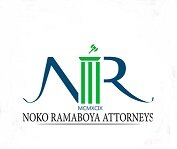Best Commercial Real Estate Lawyers in Pretoria
Share your needs with us, get contacted by law firms.
Free. Takes 2 min.
Free Guide to Hiring a Real Estate Lawyer
List of the best lawyers in Pretoria, South Africa
About Commercial Real Estate Law in Pretoria, South Africa
The field of Commercial Real Estate Law in Pretoria, South Africa revolves around a broad range of activities involving the sale, purchase, lease, and development of commercial properties. The law tends to be complex as it covers numerous aspects such as compliance with local building laws, signing of contracts between involved parties, application for permits and licenses, and mediation in case of property disputes.
Why You May Need a Lawyer
Commercial real estate transactions involve complex processes that require careful navigation. For instance, each party needs to understand the contractual terms, applicable zoning laws, and other requirements before committing to a deal. A lawyer is hence required to assist with legal counsel, drafting documents, examining contracts, and advice on due diligence. Other instances where you may need a lawyer include resolving property disputes, advice on tax laws, and representing you in court proceedings.
Local Laws Overview
The South African law is quite comprehensive when it comes to commercial real estate. It has regulations about land development rights, zoning laws, occupational health and safety standards and environmental standards which all affect commercial real estate. In Pretoria, local laws also stipulate the requirement of property registration at the Deeds Office. Money exchange laws are also crucial because non-residents buying commercial property have to comply with South Africa's foreign investment regulations.
Frequently Asked Questions
1. Does Pretoria have any specific Commercial Real Estate laws?
While the broader framework for real estate law is governed by national laws, Pretoria has its own local governance that regulates zoning, building control and property rates which affect commercial real estate properties.
2. Can I avoid transfer duties on commercial property?
Transfer duties are applicable on all property transactions unless the property is registered as a VAT entity. In which case, the transaction may be exempt from transfer duties but still subject to standard-rated VAT.
3. How does zoning affect commercial property in Pretoria?
Zoning determines the type of activities that can take place on a property. Prior to buying commercial property, you need to check the zoning to ensure that it allows the type of business you wish to conduct.
4. What is required to sell a commercial property in Pretoria?
Selling commercial property requires various legal documents, including a valid title deed, tax invoices, clearance certificates and council receipts. It's advisable to engage a lawyer to facilitate the process.
5. Are there any environmental regulations affecting commercial properties?
Yes. Commercial properties must comply with the National Environmental Management Act. Any activity that may have a significant effect on the environment may require an environmental impact assessment.
Additional Resources
The South African Property Owners Association (SAPOA) and the Estate Agency Affairs Board (EAAB) are excellent resources for commercial real estate in Pretoria. The Pretoria Deeds Office is also an essential body for property registrations.
Next Steps
If you need legal assistance, consider finding a law firm or a lawyer specializing in commercial real estate law in Pretoria. They will be able to provide appropriate guidance and advice on local regulations, processes, and managing potential disputes.
Lawzana helps you find the best lawyers and law firms in Pretoria through a curated and pre-screened list of qualified legal professionals. Our platform offers rankings and detailed profiles of attorneys and law firms, allowing you to compare based on practice areas, including Commercial Real Estate, experience, and client feedback.
Each profile includes a description of the firm's areas of practice, client reviews, team members and partners, year of establishment, spoken languages, office locations, contact information, social media presence, and any published articles or resources. Most firms on our platform speak English and are experienced in both local and international legal matters.
Get a quote from top-rated law firms in Pretoria, South Africa — quickly, securely, and without unnecessary hassle.
Disclaimer:
The information provided on this page is for general informational purposes only and does not constitute legal advice. While we strive to ensure the accuracy and relevance of the content, legal information may change over time, and interpretations of the law can vary. You should always consult with a qualified legal professional for advice specific to your situation.
We disclaim all liability for actions taken or not taken based on the content of this page. If you believe any information is incorrect or outdated, please contact us, and we will review and update it where appropriate.
















